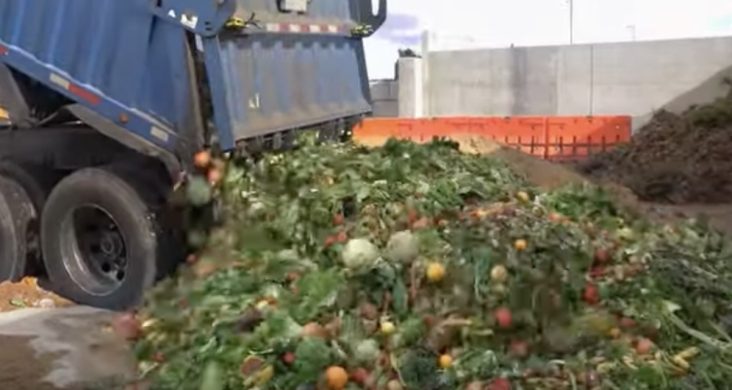DEQ commits to monitoring Denali use of Crawford County lagoon
by October 15, 2024 4:59 pm 631 views

The Division of Environmental Quality (DEQ) of the Arkansas Department of Energy and Environment is monitoring cleanout of a lagoon in Crawford County that has caused Fort Smith area residents to complain about a bad smell. But several questions remain.
The City of Fort Smith issued a statement Monday (Oct. 14) regarding multiple reports from city residents involving concerns of unpleasant odors in Fort Smith.
“After investigation, we learned that the smell is a result of a lagoon cleanup project in the Arkansas River bottoms in Crawford County. This process involves breaking down food residuals into agriculture inputs, providing local farmers with nutrient-rich fertilizer to stimulate plant growth. The anticipated completion of the lagoon cleanup is within the next 10 days,” the statement from the city said.
Russellville-based water treatment company Denali Water Solutions has stated they are in process of emptying a lagoon where they are repurposing food processing residuals into fertilizer for nearby farms, and this is likely the cause of the smell.
Carol Booth, chief of communications with Arkansas Department of Energy and Environment, said Tuesday (Oct. 15) that Denali began cleaning out a storage lagoon in Crawford County on Sept. 24. The cleanout is permitted through the DEQ. On Oct. 10, the company submitted a report stating what they have done thus far and is in compliance with state regulations.
“A total of 368,276 gallons were land applied on field SS-1 on 9/26/2024 and 9/27/2024. The clean out of the lagoon is still occurring. 3,151,735 gallons have been removed from the lagoon and the lagoon is below freeboard as of today,” the update report stated.
Paragraph 10 of Permit 5257-WR-2 states that residuals will be stored in the storage lagoon during periods of inclement weather or when [field]/crop conditions are not suitable for land application and the lagoon will be cleaned out “periodically,” Booth said. The contents in the lagoon will be land applied to the land applications sites via a dragline land application system and/or load on to and then spread with a tanker truck, terragator, or tractor and buggy.
Booth said an inspection will be conducted by the DEQ water division to make certain all protocol is followed.
“When inspecting a facility, the inspector will determine if the activities performed under the permit are in compliance with the terms of the permit,” she said.
The City of Fort Smith contacted the Department of Energy and Environment’s air division Monday, but was told all inquiries need to be routed through the water division. Josh Buchfink, public relations manager with the city, said Tuesday he had contacted the water division but had not heard back from them.
The city and Denali, which has faced regulatory and legal pushback in other states, had conversations regarding lagoon cleanup and the smells it created in the area in 2019.
“(Those organic residuals) from time to time, emitted a bad smell that wafted across neighborhoods of Fort Smith. It’s been unusually intense the last several days as the new landowner removes the residuals and prepares them for removal. The clean-up will culminate in the lagoons being closed permanently, so intermittent faint odors will no longer plague residents at various times of year,” Denali noted in January 2019.
“The issue is being resolved,” Fort Smith Mayor George McGill said at the time. “The lagoons are being drained and cleaned. Soon, it will be going away forever.”
Golden told McGill in a letter dated Feb. 1, 2019, the odors were from the work Denali Water Solutions was conducting, not from the neighboring sod farm in the river bottoms. Golden said in the letter. “These organic residuals are excellent all-natural fertilizers. We pick up the residuals from their plants and give them to farmers as eco-friendly fertilizers.”
Golden said during times when farmers cannot spread the materials on their fields, the residuals are stored in gigantic tanks or lagoons.
“Depending on certain factors (temperature, time, residual makeup), the material can get odorous,” he said.
Denali purchased a company that provides similar recycling in 2017. At that time, it also purchased a lagoon located between Highway 59 and Hollis Lake in Crawford County that is filled with the residuals.
“We knew we were going to have to clean it out and close it permanently and specifically chose the month of January because we knew it would stink and there would be less people outside. Further, the winds typically blow to the east at this time of year, away from Fort Smith,” Golden said in the 2019 letter.
Denali representatives did not respond Tuesday to questions regarding the lagoon, nor did they answer whether the lagoon being cleaned now is the same one from 2019 that was to be permanently closed.
